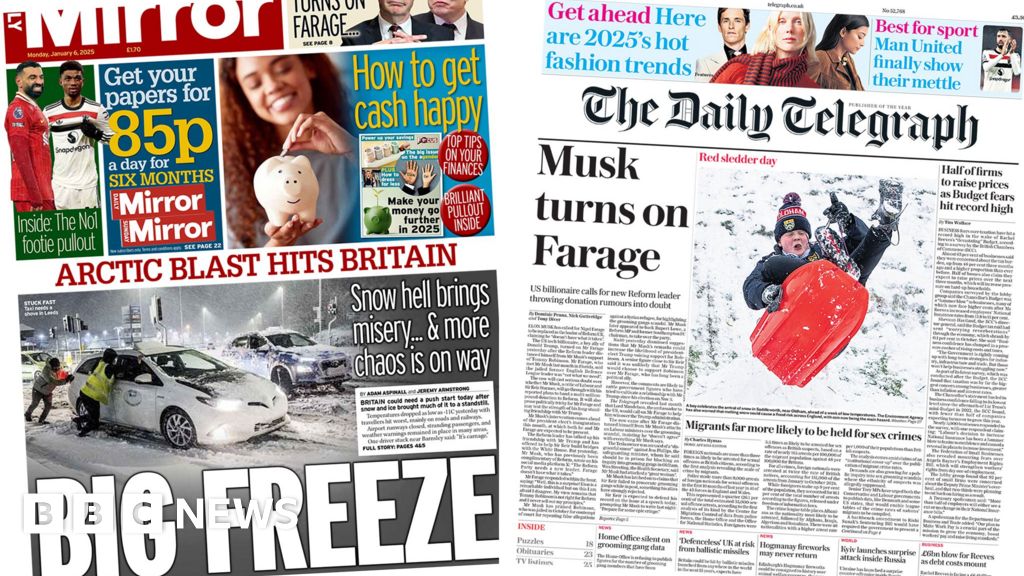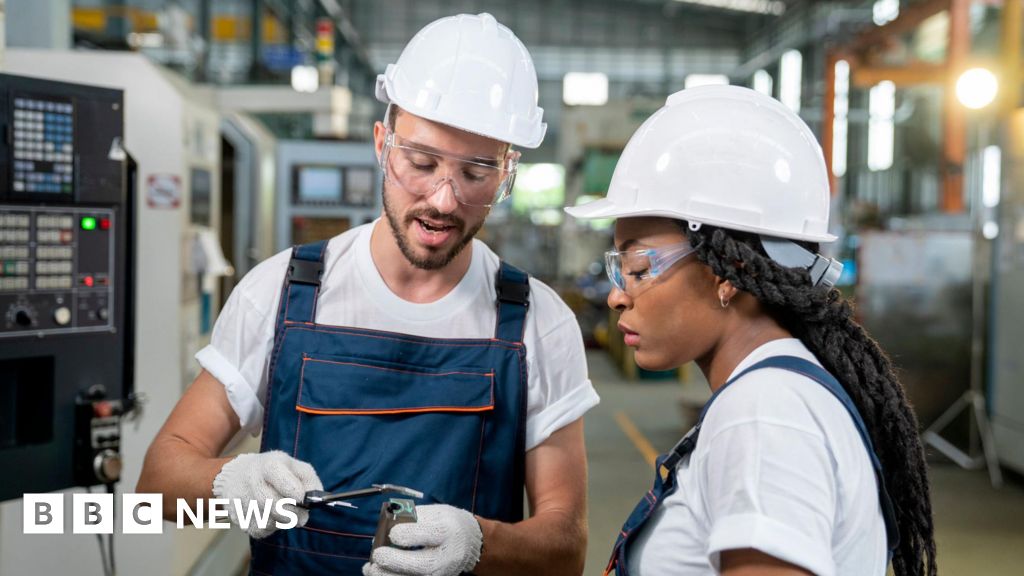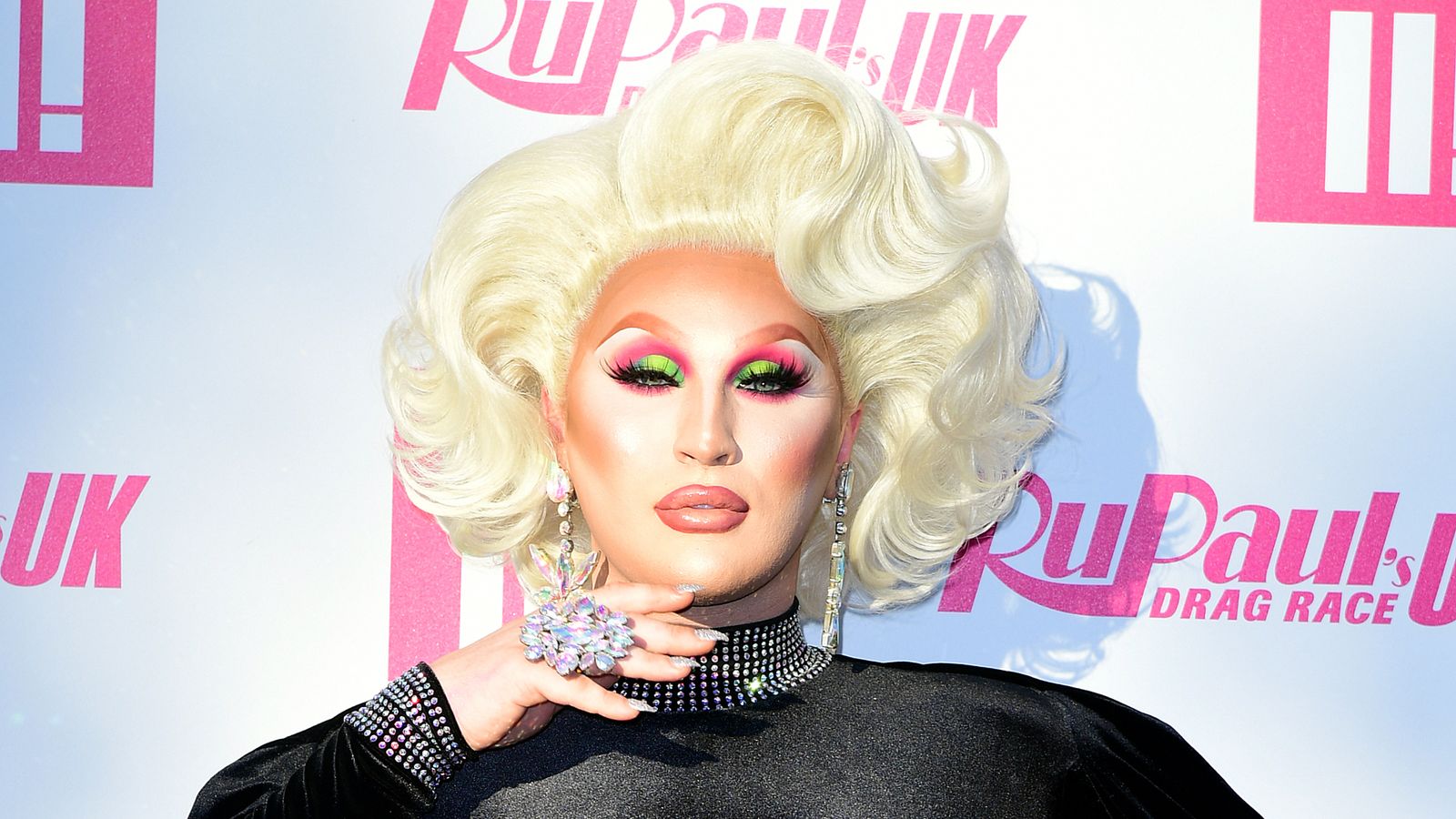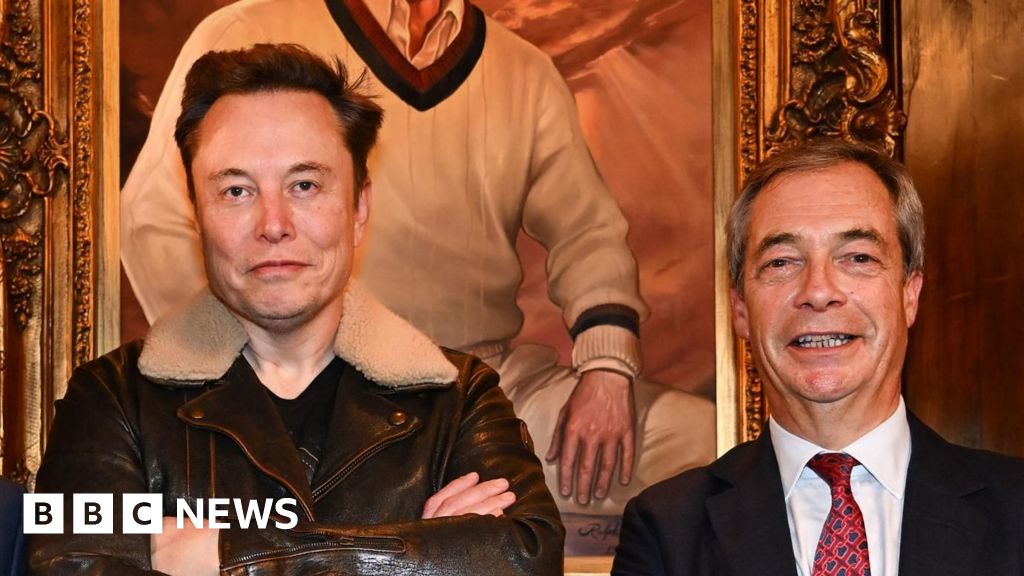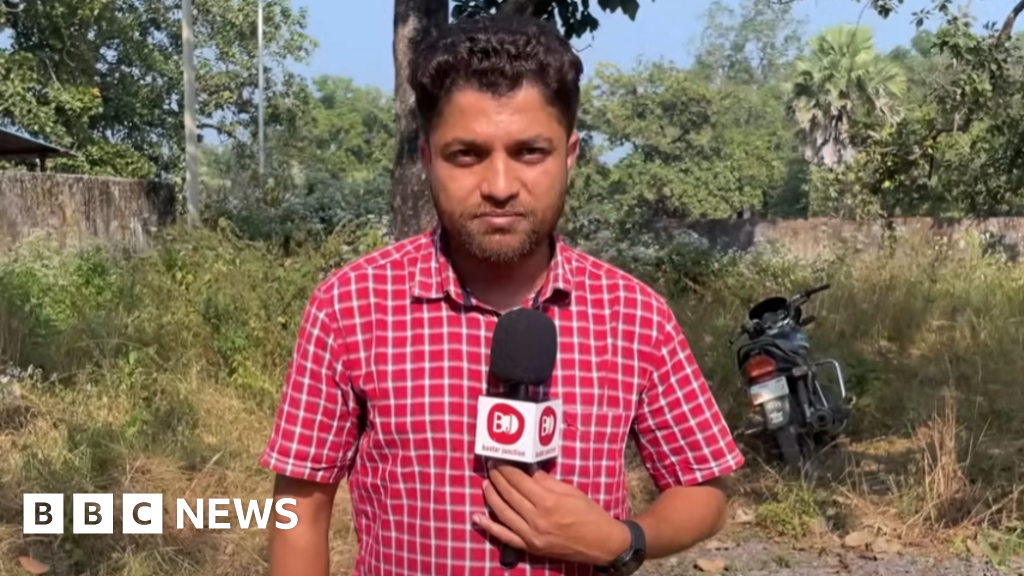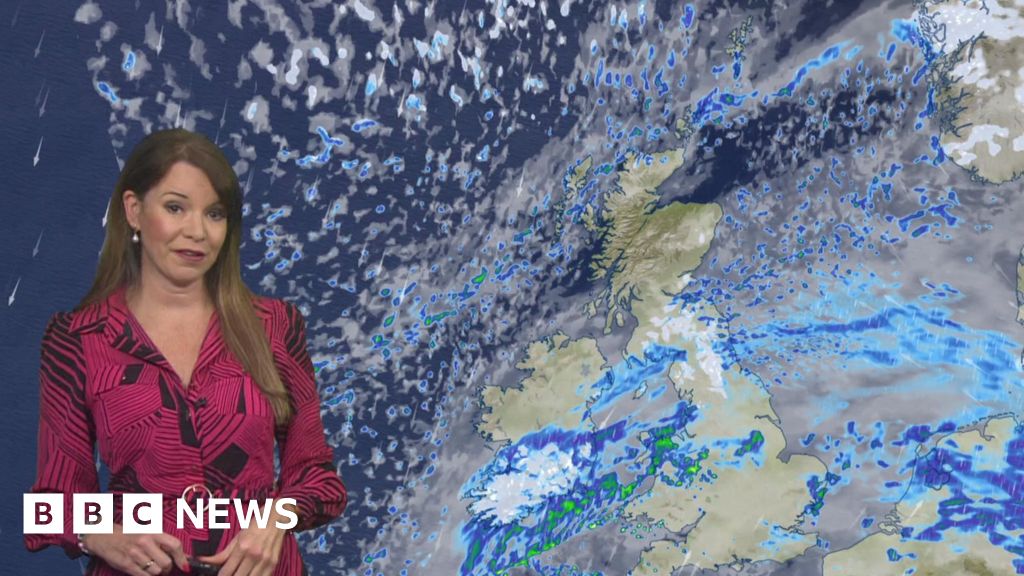 Image source, Getty Images
Image source, Getty Images
LGBT people in Poland have faced years of hostile rhetoric from senior politicians of the conservative government led by the Law and Justice party
By Sarah Rainsford
Eastern Europe correspondent, Warsaw
Just inside the entrance of one Warsaw high school, there's a red plaque that pronounces it safe for LGBT students.
"I chose this school because I just wanted to be myself," Stacey explains, long fringe dangling over a face that's heavy with make-up.
The 15-year-old is transgender and moved to the Polish capital from a small village that she calls "very conservative".
She had to hide her identity there, at great cost to her mental health.
"I didn't want to live anymore, back then. Now I'm ok. I feel better." The teenager is disarmingly frank.
The climate Stacey has grown up in hasn't made life easier.
LGBT people in Poland have faced years of hostile rhetoric from senior politicians. The country has repeatedly ranked bottom in the EU in terms of protecting LGBT rights.
But in last month's elections, the conservative Law and Justice party, or PiS, lost its majority. If an opposition coalition takes over as expected, LGBT activists are hoping for a change in both tone and policy.
Sniadek school is something of an oasis in Poland.
It hosts Rainbow Friday, an initiative meant to help young people understand diversity and feel accepted.
In one of the corridors, students set up stands with photos of gay and lesbian celebrities and the stories of rights activists from around the world.
"In my past school, one person always screamed 'faggot' at me. Now I'm living 200 kilometres [124 miles] from home just because this place is so tolerant," one of Stacey's classmates was eager to explain.
Sniadek school hosts Rainbow Friday, an initiative which helps young people understand diversity and feel accepted
The school also stopped study for a couple of hours to hear an LGBT activist talk about tolerance.
Dominik Kutz was one of the team that devised the safe-schools scheme, where students rank their schools themselves.
"It was a really tough time for the community," he says, referring to the two terms of PiS rule. "There was a huge backlash against LGBT rights from politicians and the [state] media."
The leader of PiS, Jaroslaw Kaczynski, regularly denounces the "madness" of people "declaring" themselves gay or changing gender and blames Western Europe for importing alien ideas to Catholic Poland.
PiS routinely refers to gender "ideology", not identity.
Dominik Kutz sees a direct link between the climate that such talk creates and the struggles of young LGBT people.
"We see a huge risk to mental health for this group of students. Over 70% have had at least one suicidal thought."
About an hour's drive from Warsaw is the town of Skierniewice, with a cobbled central square and an abundance of ladieswear shops.
In 2019, the local council passed a resolution "in defence of marriage and family" that talked of guarding children against "depravity".
It pronounced against "vulgar" LGBT pride marches and in favour of maintaining a ban on same-sex marriage and adoption, in the face of a supposed "attack" on the Polish family.
Activists like Mateusz hope that a new government, formed by an opposition coalition, will take measures to tackle anti-LGBT hate
"I feel very, very bad. It's scary for me. I live in the European Union. But where are the values of the EU? Tolerance? Liberty? Where?" Mateusz wants to know.
The 18-year-old, who describes himself as a "leftist, queer activist", has lived in Skierniewice all his life.
He says he had to pepper-spray people who wanted to punch him and is scared whenever local football fans go past. To him, the council resolution was part of a rising "wave of hate".
"I don't want to destroy the Polish family. I want to live, love. Simple as that. To be human."
The Skierniewice resolution was one of dozens of similar documents adopted by councils across Poland and denounced by activists for creating what they called "LGBT-Free Zones".
They've campaigned hard to get such charters withdrawn ever since.
They publicly "outed" councils by including them in an online "Atlas of Hate", then lobbied to get EU funding withdrawn for violations of European equality laws.
In 2019, the Skierniewice local council passed a resolution "in defence of marriage and family"
Skierniewice is one of around 18 municipalities that's still holding out.
We sent multiple emails and made calls requesting an interview with those who drew up the document, and visited their offices. But they did not respond.
Poland is currently in political limbo after PiS won the most votes last month, but not enough to govern alone. All other parties have ruled out joining them, but the prime minister has been given more time to negotiate.
An opposition coalition is waiting in the wings.
"I'm mildly optimistic," is how LGBT lawyer and social activist Marek Urbaniak rates the chance of change if PiS leave power.
But he cautions against too high expectations.
The opposition leader, Donald Tusk, did promise to legalise civil partnerships, but his coalition is broad-ranging.
The left-wing Lewica, which supports full marriage equality, performed worse than expected at the polls.
The socially-conservative Third Way came out stronger, which will likely give it a stronger voice in government.
In addition, the PiS-friendly president, Andrzej Duda, remains in office for another two years, with the power to block any legislation.
President Duda wielded his first ever veto almost a decade ago, stopping a bill to make it easier to get gender-change recognition.
That leaves transgender people in Poland in the extraordinary position of having to sue their parents in order to change their legal gender.
The legislation that's used was designed for a totally different purpose.
"There's a lot of expenses and you're also dealing with depression and anxiety," Marek Urbaniak says.
In his own case, one parent objected and it took almost four difficult years before the court eventually allowed him to identify, legally, as a man.
It took almost four years for the court to allow Marek to legally idenitfy as a man
Activists haven't given up on improving that, or the other big issues like same-sex marriage and adoption.
But for now they have a "rescue package" of measures that could improve life immediately for LGBT people.
That includes an end to hate speech on TV and classifying attacks on people for their sexual orientation as a specific hate crime.
As for Dominik Kutz, he wants to focus on young people.
"We need an anti-discrimination programme for students as well as teachers and mental health programmes for LGBT youth."
"That way, this new generation will be more open and educated."
 (1).png)
 1 year ago
18
1 year ago
18
